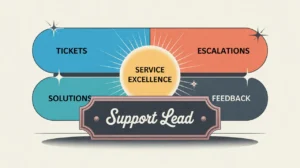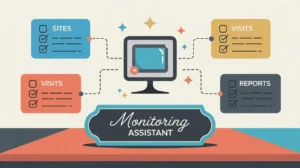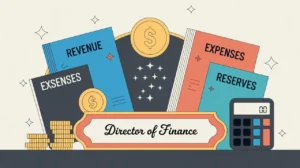What Does the Evaluation Officer Role Involve?
An evaluation officer is responsible for implementing monitoring and evaluation (M&E) activities that generate reliable data and insights to support program improvement and organizational learning. This includes designing data collection tools, coordinating field data collection, analyzing quantitative and qualitative data, preparing reports, and ensuring compliance with donor and organizational requirements. The role typically sits within the monitoring, evaluation, and learning (MEL) or research and insights function and works closely with program teams, data analysts, and evaluation managers. In both nonprofits and social enterprises, evaluation officers are key to ensuring that evidence is collected systematically and translated into actionable insights.
At What Level does this Role Operate?
Mid Level: This role typically reports to an evaluation manager, MEL lead, or head of research and insights. It focuses on implementing frameworks and conducting analysis while contributing to strategic discussions on evaluation methods and findings.
Relative Employability: Evaluation officer roles are widely available across nonprofits, social enterprises, international NGOs, and development organizations. As organizations place greater emphasis on evidence-based programming, these roles are increasingly valued for their technical expertise and operational reliability.
Relative Pay Scale: Within nonprofits and social enterprises, evaluation officer roles fall within mid-level pay bands, reflecting their technical responsibilities, analytical skills, and role in ensuring accountability.
What are the Key Responsibilities and Activities?
- Design and implement data collection tools and protocols for monitoring and evaluation activities
- Coordinate field data collection and ensure adherence to quality standards
- Clean, organize, and analyze quantitative and qualitative data using appropriate methods and tools
- Prepare evaluation reports, dashboards, and presentations that communicate findings clearly to stakeholders
- Contribute to the development and refinement of MEL frameworks and indicators
- Ensure compliance with donor and organizational MEL requirements
- Support program teams in interpreting findings and integrating evidence into planning and decision making
- Collaborate with managers and analysts to ensure consistency and rigor in evaluation processes
- Participate in organizational learning activities, helping to identify trends and lessons
What Core Competencies and Qualifications are Needed?
Required Qualifications and Experience
The following reflect common qualifications and experience expected for this role, while recognizing that pathways may vary by context, organization, and region.
- Relevant academic background in social sciences, economics, statistics, development studies, or related fields, or equivalent professional experience
- Several years of experience in monitoring and evaluation, research, or data analysis
- Proficiency with statistical software, data visualization tools, and qualitative analysis methods
- Strong data management and analytical skills
- Excellent communication skills with the ability to translate data into clear insights for diverse audiences
- Familiarity with donor MEL frameworks and reporting standards
Key Competencies
- Evaluation tool design and data collection coordination
- Quantitative and qualitative analysis
- Data visualization and reporting
- Compliance with donor and organizational MEL standards
- Cross-team collaboration and communication
- Insight generation and application to programming
How are AI and Automation Shaping this Role?
An AI-native evaluation officer will look to AI and automation to enhance data accuracy, streamline analysis, and produce faster insights. They can use AI tools to support data cleaning, run advanced analytical models, and generate visualizations and summaries that inform decision making. Automation can coordinate data flows from multiple sources, manage survey distribution, and ensure timely reporting. By using these tools effectively, evaluation officers can increase the speed and quality of evaluation work while dedicating more time to interpreting findings and advising program teams.
What Career Pathways and Transferable Skills are Associated with this Role?
Evaluation officer roles can lead to positions such as evaluation manager, MEL lead, head of research and insights, or strategy and learning director. The skills developed in data analysis, tool design, and strategic interpretation are highly transferable across nonprofits, social enterprises, government agencies, philanthropic organizations, and research institutions. This role provides a strong foundation for advancement into analytical leadership and evidence strategy roles.







